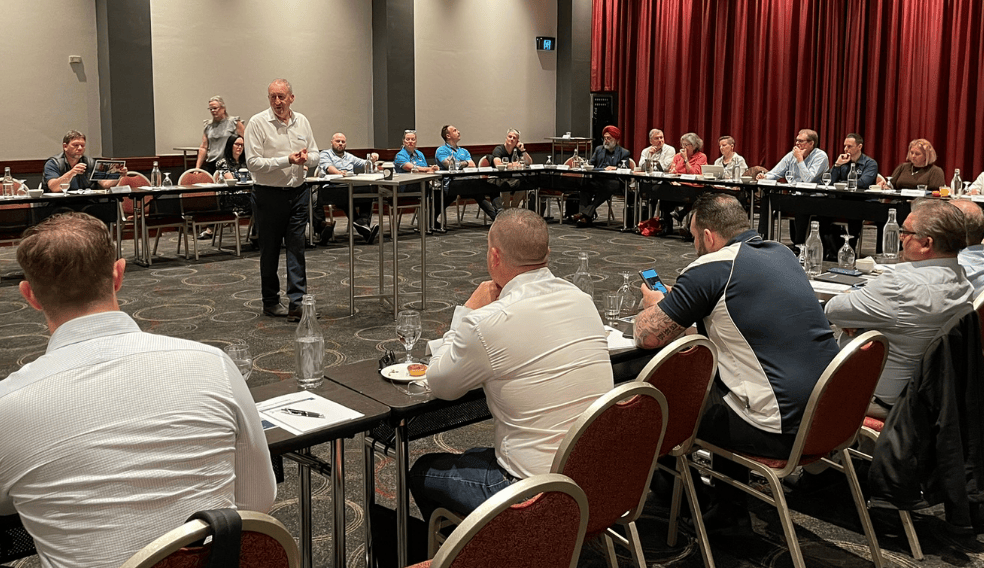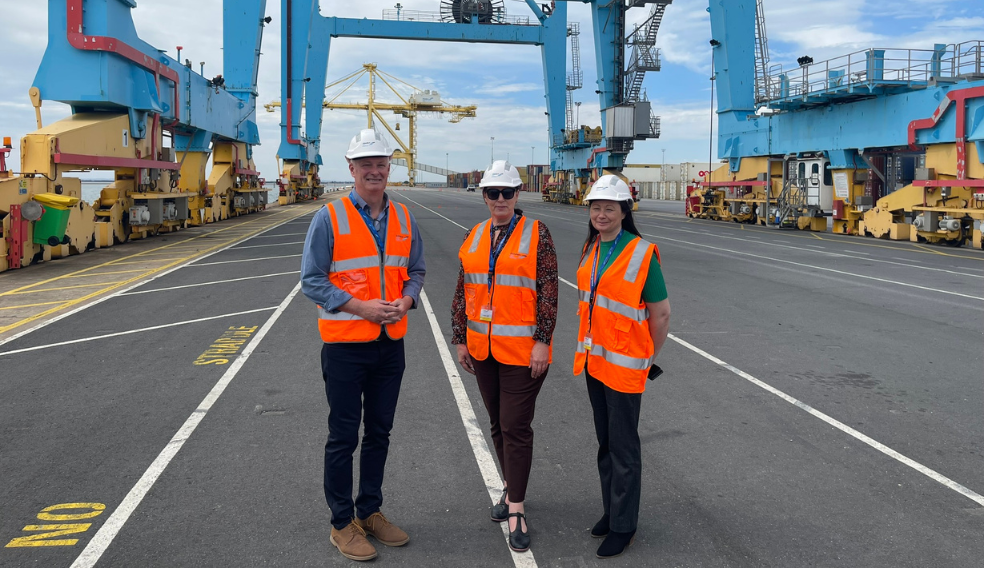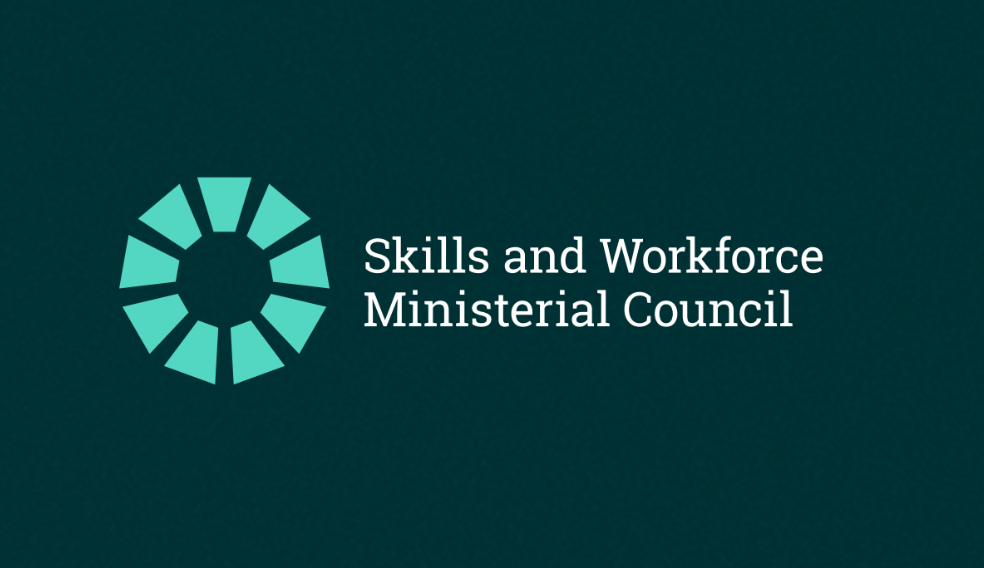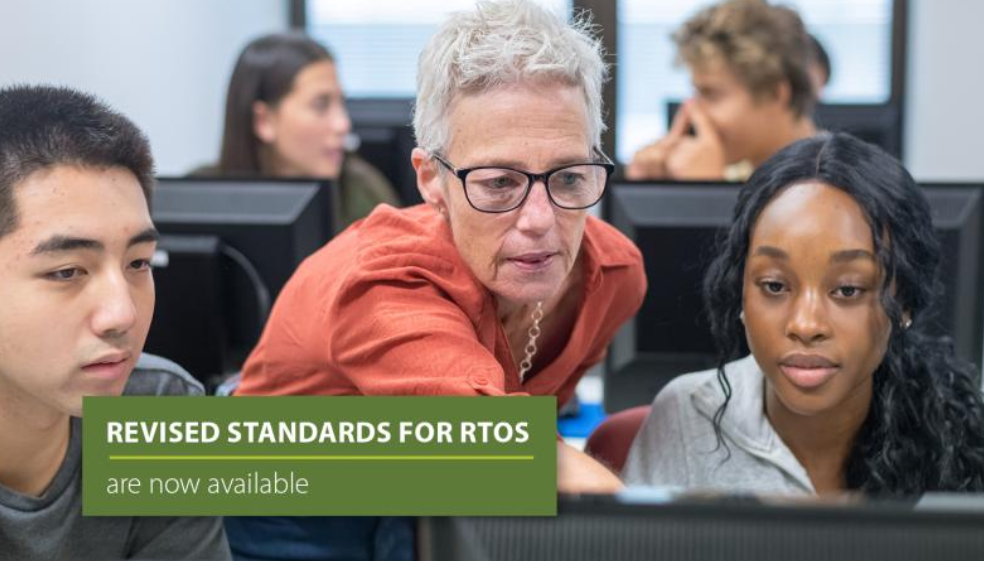Oct 16, 2024
Welcome to the October edition of our newsletter
In this month's newsletter
- Industry Roundtables update
- Getting The Inside Story – ISA On the Road
- Project Updates
- Australia's first National Skills Plan released
- A Blueprint for building a sustainable VET workforce
- Revised standards support high-quality training for VET students
Industry Roundtables update
Over the coming weeks, Industry Skills Australia (ISA) is continuing to hold a series of Industry Roundtables across Australia.
To better understand the workforce challenges industry is facing, ISA is seeking to hear firsthand from you about:
- current and emerging skills and workforce development priorities
- key blockages and bottlenecks, and high-impact solutions that industry would like to see put into action.
Our 2024 Workforce Plans were released in June this year, and we’re currently working with industry on solutions to respond to the challenges that were identified as a priority.
We also know that workforce challenges continue to emerge, and this is why it’s important to hold our national industry Roundtables around the country to hear from you.
The roundtables will greatly assist in informing ISA’s 2025 Workforce Plans and workforce planning projects to ensure they are aligned with your industry needs and trends. These Workforce Plans set out the workforce development challenges and opportunities facing the industry. The plans serve as a roadmap for the future by identifying what industry, the national skills system and governments need to do to build an agile, highly productive and resilient workforce.
Roundtables have been held in Devonport, Adelaide, Perth and Sydney over recent weeks. Employers, workers, unions, industry associations, regulators, government representatives and training providers have come together to provide insights into local workforce planning and development challenges. We have heard about the changing dynamic of skills in our workforce due to the impact of new technologies, automation, generational differences, apprenticeship and traineeship completion rates, shortages of skilled workers, difficulties accessing training and funding and the need to for diversity and inclusion in our sectors.
Regardless of whether you’re a micro, small, medium or large-scale business, ISA is keen to hear from you and understand your concerns and ideas. If you cannot attend one of the Roundtables, you can still provide feedback via this form.
Numbers are limited so please reserve your seat now by registering:
Getting The Inside Story – ISA On the Road
Industry Skills Australia (ISA) is constantly on the road listening to the needs of those on the frontline; those who run the business and do the jobs. Only through these conversations can we reliably represent the views of industry on the skills development and workforce planning challenges faced and the solutions they believe are needed.
Read more about some of our latest engagements below
Industry Skills Australia (ISA) recently delivered a presentation at the Go-Safe program, an industry forum established by CASA for ground operations stakeholders across the country. The forum provided a comprehensive overview of regulations relevant to large air transport, focusing on the training requirements for ground operations personnel.
Mori Hajizadeh, ISA’s Aviation Industry Engagement Manager, outlined ISA's role as the Jobs and Skills Council for the supply chain industries, and shared updates on current and upcoming aviation projects. During the presentation, Mori emphasised stakeholder feedback that ground operations qualifications need to better align with current industry practices and standards.
Participants highlighted the importance of standardising safety procedures and training to ensure consistency across the sector. A robust discussion followed, focusing on challenges relating to staff attraction and retention, as well as trainer burnout caused by inconsistency in ground operation procedures and manuals from different operators. Attendees also stressed the critical role of ground operations in maintaining safety, noting that any inconsistency or non-compliance could result in significant damage to aircraft, with substantial financial implications.
The forum provided an excellent platform to engage directly with key industry members, including Jetstar, QantasLink, Swissport, Star Aviation, Aus Handling, Menzies Aviation, and Dnata. ISA will continue to work with stakeholders to support workforce development projects, helping the industry address its current and future workforce challenges.
The Australian Fuel Industry plays a key role in ensuring goods and people continue to move around our country by land, air, and sea.
Industry Skills Australia’s (ISA) CEO, Paul Walsh, attended the Australasian Convenience and Petroleum Marketers Association (ACAPMA) Asia Pacific Fuel Industry Forum in Brisbane recently. Paul presented on the state of the fuel transport workforce and spoke to the industry about workforce challenges and opportunities.
It is clear that we will continue to need a highly skilled workforce well into the future to move fuel products, including renewable fuels which will play a significant role in the transition to the clean energy economy. The current tanker driver workforce is ageing faster than the rest of Australia's truck driver workforce. As such, different solutions will be needed to attract new people to this highly skilled occupation.
ISA is looking forward to working collaboratively with the Fuel Distribution Industry to solve the challenges.
Hot on the heels of ISA’s Industry Roundtable in Perth, ISA’s new Rail Engagement Manager, Carly Grigg, visited key stakeholders to hear about workforce challenges facing the industry.
Carly met with stakeholders from Public Transport Authority Western Australia, John Holland and the METRONET Trades Training Centre. Their discussions covered the importance of industry workforce planning and development, the value of partnerships, alternative recruitment options such as supporting career transition as job roles change and raising the profile of trainers and assessors as a profession and viable career pathway.
The METRONET Trades Training Centre at North Metropolitan TAFE's Midland campus is a great demonstration of how industry can work together with the vocational education and training sector to address workforce challenges and deliver industry relevant training.
The centre, the first dedicated public facility of its kind in Western Australia, was built to support training for jobs in the rail industry and the delivery of a pipeline of workers to address skill shortages in highly technical roles that are critical to industry supply chains.
Developed in close consultation with industry, the facility includes rail signalling workshops, a dual-track level crossing, a maintenance track and crossover, and a signalling equipment room to enable hands-on training. A section of rail line is in place for training in maintenance of various gauges of rail.
Reflecting industry standards, the centre has been the beneficiary of donated specialised equipment from some of the giants of the Western Australian rail sector.
The General Aviation Advisory Network (GAAN) was established by the Australian Government in October 2016 to provide advice to the Minister for Infrastructure and Transport on matters affecting the General Aviation (GA) sector.
The GAAN serves as a platform for industry representatives to collaborate, identify trends, issues and pressures facing the GA sector. These include strategies to promote careers and developing a resilient workforce by ensuring the transferability of skills and recognition of qualifications.
GAAN invited Mori Hajizadeh, ISA's Aviation Industry Engagement Manager, to deliver a presentation at its recent meeting at Parliament House in Canberra on ISA’s work to address aviation workforce challenges.
Mori highlighted key achievements to date, including the establishment of the Aviation Strategic Workforce Planning Committee. Mori also emphasised ISA’s collaboration with various stakeholders—including from government, industry, unions, and the National Skills System—to identify current and future workforce challenges.
A key focus of the presentation was ISA's role in determining skills needs and priorities as outlined in the Aviation White Paper. Mori also provided updates on the publication of the Aviation Workforce Plan, which details identified challenges, proposed actions, and the progress of various projects.
On the back of our Adelaide Industry Roundtable, Industry Skills Australia (ISA) staff were taken on a tour of Flinders Adelaide Container Terminal, which prides itself on being a world-class facility. Terminal staff provided ISA with a great insight into port operations and the ever-evolving nature of stevedoring roles, technologies, and the skills required.
An in-house crane simulator training facility is fundamental to providing the company with skilled workers. The terminal is also pioneering AI-supported container movement optimisation, further strengthening the ability to quickly and efficiently move containerised cargo through Port Adelaide. These technology changes impact the skills needed by stevedores, so seeing how job roles are impacted provided the ISA team with a deeper understanding of what’s needed now and in the future of qualification design.
Flinders Port Holdings is a privately owned port, logistics and container terminal services group based in Port Adelaide. They own and operate Flinders Adelaide Container Terminal as well as the six key regional ports of Port Giles, Port Lincoln, Wallaroo, Port Pirie, Klein Point and Thevenard. Flinders Port Holdings is ranked as one of South Australia’s top 10 companies, with an annual turnover of more than $300 million. It employs over 750 people and indirectly supports 6000 jobs in South Australia.
Flight Training Adelaide (FTA) is a nationally and internationally respected flight school based in Adelaide. FTA delivers both airline cadet and self-funded aviation training programs for airlines such as Qantas and Cathy Pacific.
ISA’s Aviation Industry Engagement Manager, Mori Hajizadeh, met with FTA’s Chief Executive Officer, Pine Pienaar to discuss the challenges facing the aviation industry. Mr. Pienaar discussed several issues including attraction and retention, especially for flight instructors and Licensed Aircraft Maintenance Engineers (LAME), the rising cost of training, and competition from overseas airlines who poach highly qualified pilots and instructors from Australia.
Mr. Pienaar also shared his thoughts about the importance of recognising international qualifications for maintenance workers, promoting the industry, and attracting younger people to aviation careers.
Future ISA aviation projects will assist in addressing some of these challenges.
Date | Conference | Location |
16-17 Oct | Safeskies 2024 | ACT |
23 – 24 Oct | iMOVE National R&D Conference 2024 | Brisbane |
29 – 30 Oct | Ports Australia Biennial Conference | Hobart |
29 – 30 Oct | SEGRA foundation (Sustainable Economic Growth for Regional Australia) | Bussellton WA |
31 Oct – 1 Nov | VELG National VET Conference | Brisbane |
Project Updates
New Projects
The following projects have commenced, after approval by the Department of Employment and Workplace Relations. You can find more information about these and other projects on our website.
Improving Career Information
ISA’s 2024 Workforce Plans identified several challenges common across the Aviation, Maritime, Rail, Transport, and Logistics industries. Critical labour and skills shortages are one such challenge and have been exacerbated by limited access to accurate information on job roles and career pathways, and outdated perceptions of industry.
To address this issue, and with the support of our Strategic Workforce Planning Committees, ISA has initiated four discrete projects to develop career information specific to Aviation, Maritime, Rail, Transport, and Logistics occupations.
The projects will run concurrently and produce consistent high-quality resources useful to a broad range of stakeholders including job seekers, career guidance counsellors, schools, students, employment service providers, training providers, employers, industry peak bodies and other associated organisations.
Companion volumes to the AVI, MAR and TLI Training Packages will be developed to provide comprehensive information for Transport and Logistics occupations. They will achieve a range of benefits including:
- raising awareness of careers in the industries
- supplying simplified details on pathways, training, skills and knowledge requirements for employment
- showcasing industry’s potential for innovation and progression
- providing guidance on career development and growth
- attracting a broader and more diverse talent pool to the Transport and Logistics sector.
- Provide a source of information to inform careers advisors
The projects have been approved by the Department of Employment and Workplace Relations (DEWR) and will commence shortly.
Visit the Aviation Career Information Project
Visit the Maritime Career Information Project
Visit the Rail Career Information Project
Visit the Transport and Logistics Career Information Project
Marine Order 505 and Vessel Traffic Services (Maritime Training Package)
The Training Package Assurance Body has recommended draft Training products for these projects be endorsed by Skills Ministers.
Maritime Training Package products have been aligned with Marine Order 505 (Certificates of competency – National Law) for domestic commercial vessels. The regulatory and licensing requirements in MO505 aim to ensure that seafarers can continue to meet the highest standards of competence and safety in their roles and help safeguard the integrity and effectiveness of maritime training, benefiting both the industry and the seafaring community.
In response to a request from the Australian Maritime Safety Authority (AMSA), the Certificate III in Vessel Traffic Services and six related units of competency have been proposed for deletion from the Maritime Training Package. This is in response to new International Maritime Organization (IMO) guidelines regarding the operation of Vessel Traffic Services (VTS) and changes to certification requirements for VTS operators.
Draft training products have been developed and are now available for stakeholder feedback for the following projects:
Autonomous Maritime Systems (Maritime Training Package)
Draft training products are aimed at enabling greater flexibility and efficiency in skills development for operators of autonomous vessels.
A technical committee of subject matter experts has proposed the deletion of training pre-requisites to support streamlined delivery of units for new and emerging job roles conducting Autonomous Underwater Vehicles (AUV) and Autonomous Surface Vessel (ASV) operations.
Furniture Removal (Transport and Logistics Training Package)
Training products have been drafted to enable greater access to training and a learning pathway for furniture removal workers.
The products, drafted by a technical committee of subject matter experts, will enable furniture removal workers to gain accredited qualifications with skills that are highly transferable to a range of vocations across supply chain sectors.
Units of competency applicable to furniture removal have been integrated into supply chain operations and driving operations qualifications and updated to include current industry practices, whilst the Certificate II and III Furniture Removal qualifications are proposed for deletion.
Motor Vehicle Driver Training (Transport and Logistics Training Package)
Ensuring the Certificate IV in Motor Vehicle Driver Training is up to date is important to meet the high demand for instructors and proposed licensing reforms. A technical committee of subject matter experts has reviewed the qualification and updated the two superseded units from the Training and Education Training Package.
Australia's first National Skills Plan released
Australia’s first National Skills Plan has been released by the country’s skills and training ministers.
The National Skills Plan outlines Skills Ministers’ vision for the national vocational education and training system, and the approach to achieving the shared goals of the National Skills Agreement. It provides direction for industry, employers, and the VET sector to help align efforts towards the same objectives
A central part of the plan is a new model for shared stewardship of the VET system.
Ministers said the National Skills Plan represents a step change in how governments work together to build the skills Australia needs. Through a new focus on shared leadership, national planning and evidence-based decision-making that is guided by industry knowledge, all governments and stakeholders will work in partnership to deliver a stronger and more responsive VET system.
The inaugural National Skills Plan is framed around eight key priorities:
- Gender Equality
- Closing the Gap
- Supporting the Net Zero Transformation
- Sustaining Essential Care Services
- Developing Australia’s Sovereign Capability and Food Security
- Ensuring Australia’s Digital and Technology Capability
- Delivering Housing Supply
- Delivering reforms to improve the regulation of VET qualifications and quality
The first National Skills Plan is the start of the planning process over the five years of the National Skills Agreement. The Commonwealth, states and territories will also produce individual jurisdictional action plans that detail the action each government will take to deliver on the National Skills Plan and National Skills Agreement. These will be published in November 2024.
The National Skills Plan is informed by effective engagement between governments, Jobs and Skills Australia, Jobs and Skills Councils, First Nations organisations and communities, and partnerships with key stakeholders as part of the annual planning and review cycle.
See the National Skills Plan
See the National Skills Plan fact sheet
A Blueprint for building a sustainable VET workforce
The Australian Government has announced the release of the Vocational Education and Training (VET) Workforce Blueprint, a roadmap of action to address long-standing challenges within the sector and to help grow Australia’s VET workforce.
The blueprint identifies a range of opportunities and actions which support the attraction, retention, and capability of the VET workforce and provides a national roadmap for the workforce’s long-term sustainability.
Minister for Skills and Training Andrew Giles said “The Blueprint recognises the importance of the VET workforce, the challenges it faces, and the actions needed to support it. Giving Australians the skills they need means supporting those who teach and train them.
The Blueprint’s aims are:
- growing the workforce, by increasing the number of people entering the VET workforce pipeline to ensure long-term supply of staff, including teachers, trainers and assessors.
- retaining and developing the workforce, by supporting and building workforce capability to ensure a sustainable, highly skilled and quality VET workforce; and
- understanding the workforce, by developing a data collection on the VET workforce and undertaking occupational mapping and research to better understand the roles and pathways across all VET contexts.
The blueprint supports action under the National Skills Agreement, which allocates $30 million for national action and $70 million for states and territories to deliver workforce initiatives to grow and retain a quality and sustainable VET workforce.
To support the blueprint’s release, the Australian Government, in collaboration with states and territories, has announced an initial suite of foundational national actions. These include:
- occupational mapping for the VET workforce
- a VET workforce data strategy
- an ongoing research program for key workforce issues
- mapping and analysing compliance and administrative burden to inform strategies to reduce this burden.
The Blueprint was informed by the Vocational Educational and Training Workforce Study, undertaken by Jobs and Skills Australia (JSA). A link to the VET Workforce Study can be found here. The blueprint will be reviewed regularly to ensure it remains responsive to challenges affecting the VET workforce.
Find out more about the VET Workforce Blueprint on the Department of Employment and Workplace Relation’s website.
To support early actions in response to the VET Workforce Blueprint, announced 3 October 2024, the Commonwealth has provided all JSCs funding to take forward a 12–18-month program of work. This project will see JSCs drive industry collaboration and support in identifying and delivering on relevant responses to VET workforce issues.
The department will be holding an industry briefing on Thursday 31 October to share details about the VET Workforce and JSC-led VET Workforce Project.
Stakeholders can register for the webinar here.
Revised standards support high-quality training for VET students
Revised Standards for Registered Training Organisations (RTOs), aimed at lifting the quality and integrity of the nation’s vocational education and training (VET) sector, have been released by the Australian Government.
The revised standards aim to ensure students receive high-quality training to place them into well-paid secure jobs with industry-relevant skills and knowledge for today and into the future. They shift the focus beyond that of baseline compliance requirements and are framed around 23 outcome-focused standards across four key quality areas – training and assessment, learner support, workforce, and governance.
This represents a step change in all Governments’ shared ambition to lift quality and integrity across the sector by enabling a more flexible, robust, and quality-driven approach to regulation.
The revised standards will strengthen the focus on quality outcomes for learners and employers, provide greater clarity for RTOs and regulators, and allow for more flexibility and innovation in training delivery across the sector.
Minister for Skills and Training, Andrew Giles said “We want to raise the bar for VET providers. Revised standards will ensure students and employers can have confidence in a VET system that will deliver the high-quality training required to equip them with the skills needed.”
The revised Standards will come into full regulatory effect from 1 July 2025. The Standards for Registered Training Organisations (RTOs) 2015 will apply until then.
Find out more about the revised standards here.






